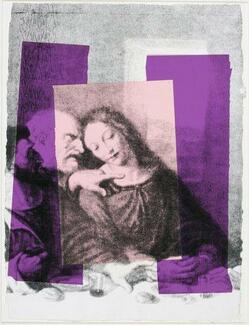
Andy Warhol: Revelation Andy Warhol
Dates : Vendredi 19 novembre 2021 - Dimanche 19 juin 2022
Adresse : Brooklyn Museum, 200 Eastern Parkway, 11238 Brooklyn
Brooklyn Museum
200 Eastern Parkway
Brooklyn, NY 11238
États-Unis
Description, horaires...
Although Andy Warhol is one of the most celebrated and recognizable artists of the twentieth century, his Byzantine Catholic upbringing, and its profound impact on his life and work, remains a lesser known facet of his career. Andy Warhol: Revelation explores the artist’s lifelong relationship with his faith that frequently appeared in his artworks.
From iconic portraits of celebrities to appropriated Renaissance masterpieces, Warhol played with styles and symbolism from Catholic art history, carefully reframing them within the context of Pop art and culture. Throughout his life, Warhol retained some of his Catholic rituals, while also unapologetically living as an out gay man.
Andy Warhol: Revelation examines themes such as life and death, power and desire, the role and representation of women, Renaissance imagery, family and immigrant traditions and rituals, depictions and duplications of Christ, and the Catholic body and queer desire. Among the more than one hundred objects on view are rare source materials and newly discovered items that provide a fresh and intimate look at Warhol's creative process, as well as major paintings from his epic Last Supper series (1986), the experimental film The Chelsea Girls (1966), an unfinished film depicting the setting sun, commissioned by the de Menil family and funded by the Roman Catholic Church, and drawings created by Warhol’s mother, Julia Warhola, when she lived with her son in New York City.
Andy Warhol: Revelation is organized by the Andy Warhol Museum and curated by José Carlos Diaz, Chief Curator. The Brooklyn presentation is organized by Carmen Hermo, Associate Curator, Elizabeth A. Sackler Center for Feminist Art, Brooklyn Museum.